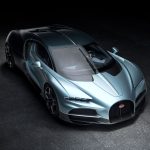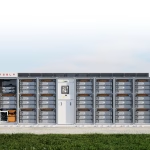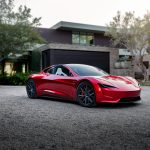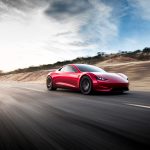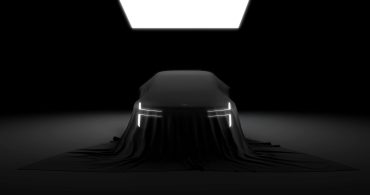
- Mobility Tech
Volvo to Build Polestar 7 in Slovakia in EU EV Strategy Shift
5 minute read

European electric SUV production helps Polestar avoid Chinese tariffs while targeting premium compact market growth
Key Takeaways
- Polestar 7 production moves to Europe – Volvo Cars will manufacture Polestar’s new premium compact SUV at its €1.2 billion Kosice, Slovakia facility starting in 2028, marking Polestar’s first European production site.
- Strategic shift from Chinese manufacturing – The move reduces tariff exposure amid growing trade tensions on Chinese-made EVs, targeting the premium compact SUV segment that represents 35% of global EV sales.
- Major investment in European EV capacity – The climate-neutral Kosice plant will produce up to 250,000 cars annually, creating thousands of jobs and strengthening Volvo’s European manufacturing network.
Introduction
Volvo Cars and Polestar have signed a memorandum of understanding to develop and produce Polestar’s upcoming premium compact SUV at Volvo’s new manufacturing facility in Kosice, Slovakia. The fully electric Polestar 7, slated for launch in 2028, represents a significant strategic shift for the premium EV brand.
This decision marks Polestar’s first European production site, moving away from its historical reliance on Asian manufacturing. The collaboration addresses growing trade tensions and tariffs on Chinese-made EVs while positioning both brands to compete more effectively in the rapidly expanding premium compact SUV market.
Key Developments
Polestar announced the Polestar 7 will be built at Volvo’s upcoming Kosice factory, representing a major departure from the brand’s previous production strategy. Prior to this announcement, Polestar vehicles were exclusively produced in Asia and North America.
The new SUV will likely utilize Volvo’s SPA3 platform, which will underpin all future Volvo models. The Polestar 7 is anticipated to be the second vehicle produced at the Kosice plant, following a yet-to-be-announced next-generation Volvo model whose production has been pushed back until early 2027.
Early teaser images reveal a traditional blocky SUV shape with thin LED lights extending into the nose and bumper. The model features an upright fascia, prominent lighting units, and pronounced fenders, maintaining Polestar’s signature design language.
Market Impact
The Polestar 7 targets the premium compact SUV segment, which currently represents 35% of global EV sales and continues to grow rapidly. The vehicle aims to attract buyers seeking alternatives to mainstream models like Tesla’s Model Y.
Volvo Cars reported strong financial performance for 2024, achieving a core operating profit of SEK 27 billion and reaching SEK 400.2 billion in revenue. Global sales hit a record 763,389 cars, demonstrating the company’s robust market presence.
However, Polestar faces ongoing profitability challenges, having reported a $383 million loss in 2023. Analysts project 30-35% annual sales growth through 2027 if the Slovakia strategy executes successfully.
Strategic Insights
The collaboration leverages significant technological synergies between Volvo Cars and Polestar. The Polestar 7 will incorporate advanced technologies including group component sharing, mega casting, and cell-to-body battery integration, all utilizing next-generation battery density and performance capabilities.
Slovakia provides strategic advantages as the “Detroit of Europe,” with established automotive manufacturing facilities from companies like Volkswagen, Kia, and Stellantis. The location offers robust infrastructure, skilled labor force, and excellent logistical connections to European customers and suppliers.
The move reduces exposure to trade tensions while accessing European renewable energy grids and regional sourcing opportunities. This aligns with both companies’ sustainability goals and reduces transport emissions compared to Asian production.
Expert Opinions and Data
Håkan Samuelsson, President and CEO of Volvo Cars, emphasized the strategic importance of the partnership. “Our collaboration with Polestar on the development and manufacturing of the Polestar 7 underscores how Volvo Cars and Polestar continue to leverage synergies to efficiently deliver outstanding cars built for our distinct customer segments,” he stated.
Michael Lohscheller, CEO of Polestar, highlighted the market positioning benefits. “Working with Volvo Cars to develop and manufacture Polestar 7 in Europe is a unique opportunity that will strengthen our position in our home market,” he said, according to CleanTechnica.
The Kosice facility represents a €1.2 billion investment and plans to manufacture up to 250,000 cars annually. The climate-neutral plant exclusively produces electric vehicles, supporting Volvo’s goal to achieve net-zero greenhouse gas emissions by 2040.
Conclusion
The Polestar 7 production agreement represents a significant strategic realignment for both companies, addressing immediate tariff concerns while positioning for long-term growth in Europe’s premium EV market. The collaboration demonstrates how automotive companies are adapting their manufacturing strategies to navigate geopolitical tensions while maintaining technological competitiveness.
Success will depend on realizing projected cost synergies and scaling production efficiently at the new facility. The partnership strengthens both brands’ European market presence while advancing their shared sustainability objectives through localized, climate-neutral production.

